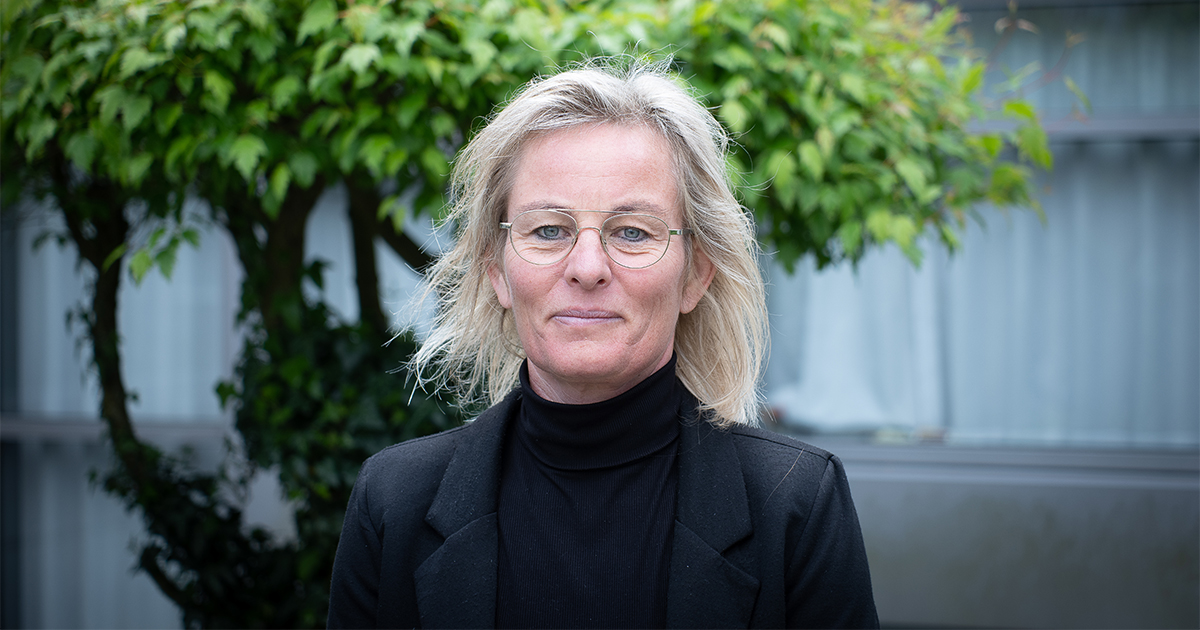
Women in research: Louise Nyholm Kallestrup
On the occasion of the International Women’s Day on 8 March, please meet some of our women researchers from SDU and learn their perspectives on being a woman in research.
Louise Nyholm Kallestrup
Louise, lnk@sdu.dk, is an Associate Professor at and head of the Centre for Medieval and Renaissance Studies. Louise researches the persecution of witches and is fundamentally interested in why people act and interact with each other the way they do. What is the significance of social relations? What drives people to treat their fellow human beings so inhumanly that in the case of witch-hunts meant they burned each other at the stake?
There is a general notion that the research world is dominated by men. Do you accept this notion? And how have you yourself managed to build a career in a ‘man’s world’?
I am a historian and lecturer at the Department of History. In recent years, we have seen that many young women apply for the programme. Today, about 40% of the students are women. This is also reflected in the recruitment of PhD students, and in the last ten years we have had many talented women PhD students. Here, the distribution is probably 50-50. But unfortunately, History follows the general bottleneck scenario for academia, where the number of women decreases the further up the career ladder we get.
The number of ‘full professors’ in the history programmes at Danish universities is 14 distributed among the five classical universities. Of these, three are women. It clearly shows that it’s more than just a notion that the research world is dominated by men. This means many women find themselves being one of the few women in research collaborations when climbing the career ladder.
This is a long discussion that I’ve been involved in for many years and that we can hardly cover thoroughly here. Therefore, let me just remark on one thing many of my female colleagues will probably recognise, namely that the combination of being young and a woman can present a double challenge in the academic world. It is often expected that you take on the role of secretary and take minutes, or at least provide the coffee and order cake for meetings. In that regard, turning 40 has certain advantages.
”It is often expected that you take on the role of secretary and take minutes, or at least provide the coffee and order cake for meetings. In that regard, turning 40 has certain advantages.
Who are your biggest role models? Do you have someone you take example from?
Luckily, I have many. Both male and female role models. And I’m lucky to have several of them as colleagues both at SDU and the other Danish universities. People who, despite facing adversity themselves, manage to behave properly towards everyone regardless of their place within the hierarchy and who seek to improve the community.
If we gaze beyond the border, a number of women have been pioneers in the world of historians, both in terms of themes and approach. Today, any historian should naturally relate to gender as a parameter of a study, regardless of whether or not it forms the centre of the analysis. But well into the 20th century, women were lacking in historical representations – and at the end of the day, the distribution between men and women has remained fairly constant throughout history.
Today’s gender perspective stems largely from women’s history and from the 1970s and 1980s onwards, we’ve seen a number of pioneering female historians. My favourite female role models are Natalie Zemon Davis, Elizabeth Cohen and later on Lyndal Roper. They have each in their own way contributed directly and indirectly to my research. That Lyndal Roper today sits as the first female Regius Professor of History at the University of Oxford is a recognition of not only my subjects: research into witches, emotional history and reformation, but also of women historians.
What do you dream of achieving with your research?
With my research and teaching, I hope to be able to inspire further studies, and that more young research talents pick up the topics. Some people may find the persecution of witches a somewhat exotic research area, but it contains an entrance to understand the cultural and social norms and ideas of the past in a way that is fundamental to the understanding of the society in those times in a broader sense. In addition, the subject is well-suited to bridge the gap between the university and the world outside. The topic piques curiosity, because it appeals directly to the interest in cultural heritage and one’s own identity, and thus helps to make research at universities relevant. I hope to be able to make this idea more widespread.
